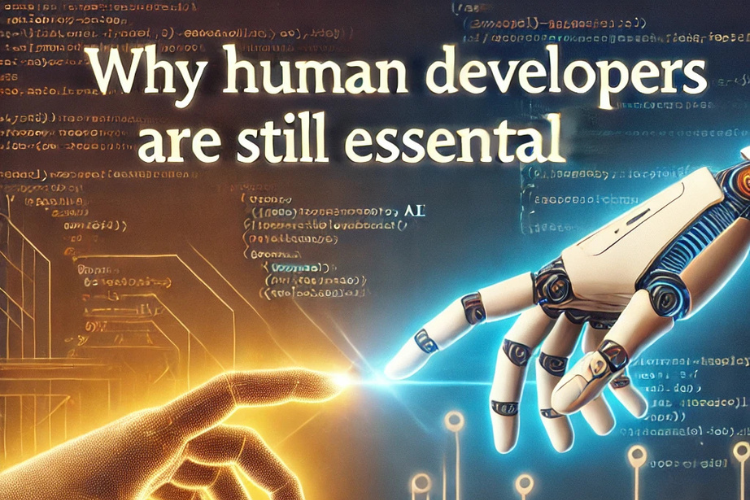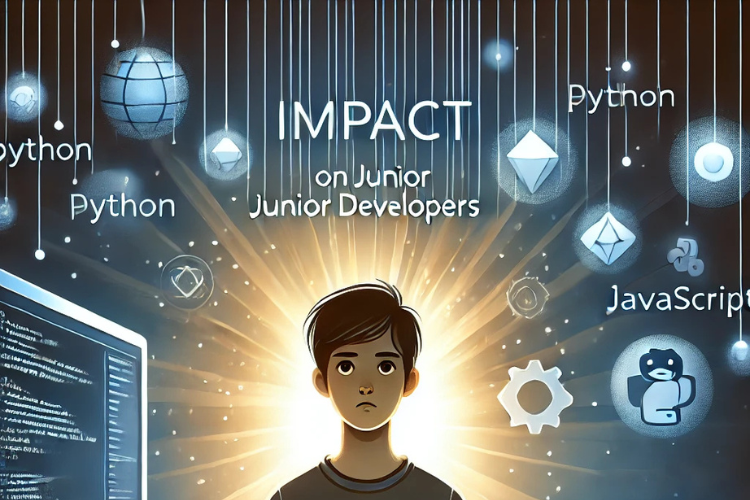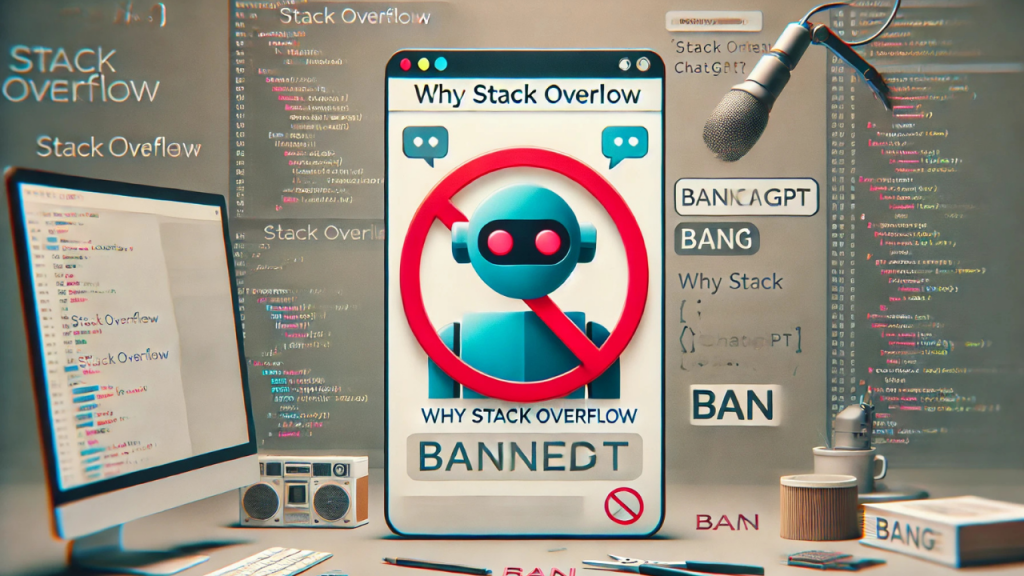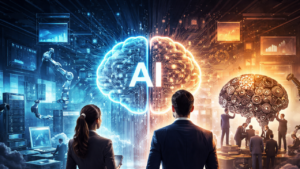Introduction
When Stack Overflow banned ChatGPT, it sent shockwaves through the developer community. For anyone who’s leaned on Stack Overflow to get through challenging coding problems, this news was both surprising and thought-provoking. Why would the largest Q&A site for developers make such a drastic decision? The answer reveals a lot about the strengths and weaknesses of AI, especially when it comes to the complex world of coding.
Here at StartupHakk, we’re passionate about helping software developers learn and grow. Through our training programs and custom software solutions, we’re on a mission to support developers at every level. Let’s break down Stack Overflow’s decision, the lessons it holds for the future of AI in coding, and why human developers are far from replaceable.
Why Did Stack Overflow Ban ChatGPT?
Stack Overflow’s ban on ChatGPT wasn’t random. It was a direct response to an issue that had become too big to ignore. ChatGPT, despite its sophisticated language model, had a knack for delivering confidently incorrect answers. These answers looked and sounded correct, but they were often misleading or flat-out wrong.
This overconfidence was a problem. As ChatGPT-generated answers started flooding the site, the quality of responses dropped. Developers trying to find reliable answers encountered confusing, broken code that added more frustration than help. Stack Overflow’s decision to ban ChatGPT was, in many ways, a quality control move. By stopping the spread of misleading AI answers, they protected the community from misinformation.
The Risks of Relying on AI for Coding Solutions
The Stack Overflow ban sheds light on a key risk of AI: it can be confidently wrong. ChatGPT produces polished, grammatically correct responses, which makes them appear reliable. However, in coding, looks can be deceiving. A code snippet that reads well but doesn’t actually work is worse than no solution at all.
This problem isn’t just about bad code—it’s about the potential impact on learning and project outcomes. Developers rely on accurate solutions to advance their work. When an AI generates incorrect code, it slows progress and often leads to hours of debugging. This experience reinforces why quality matters. It’s not enough for AI to sound good; it must be correct.
Why Human Developers Are Still Essential
The Stack Overflow ban highlights a crucial point: human developers bring unique skills to problem-solving that AI can’t replicate. AI can generate text, suggest code, and even provide insights, but it lacks real understanding. Coding requires critical thinking, adaptability, and an in-depth grasp of each problem’s nuances. These are skills that can’t be automated, at least not yet.

Human developers are more than code writers—they’re problem solvers. They know how to approach complex issues, analyze errors, and find solutions. This combination of experience and judgment is irreplaceable. AI tools like ChatGPT may offer assistance, but they can’t replace the depth of knowledge that comes from years of practice. At StartupHakk, we’ve seen that the best developers aren’t just skilled coders; they’re skilled thinkers.
The Temptation of AI Shortcuts
AI can tempt developers to take shortcuts. With tools like ChatGPT, it’s easy to let AI do the heavy lifting. Why spend hours learning the ins and outs of a language when AI can generate an answer in seconds?
But this approach has risks. Relying too much on AI leads to missed learning opportunities. Those hard-earned lessons—the “Aha!” moments that come after hours of work—are what make great developers. By taking shortcuts, developers lose out on these critical experiences.
AI should be seen as a support tool, not a substitute for deep learning. Shortcuts may offer immediate convenience, but they’re a fast track to shallow knowledge. Real growth in coding comes from understanding why a solution works, not just copy-pasting code.
Limitations of AI in Understanding Code Nuances
ChatGPT’s biggest limitation is that it doesn’t understand code the way humans do. Natural language is its specialty; code is not. Small details, like a misplaced semicolon or a slight misunderstanding of a library, can break an entire program. AI can’t grasp these subtleties, and when it confidently presents broken code, it only adds confusion.
This limitation often leads to frustration for developers. Instead of solving problems faster, they end up spending more time fixing AI’s mistakes. It’s a reminder that coding is a precise, detail-oriented process. For now, human developers are the best fit for handling these complexities.
The Importance of Responsible AI Use
The Stack Overflow ban is a wake-up call about responsible AI use. Just because an AI can generate an answer doesn’t mean it’s the right answer. Developers must approach AI suggestions critically, verifying each solution before using it.
At StartupHakk, we believe that AI should be a tool to augment human intelligence, not replace it. Using AI responsibly means understanding its limitations and knowing when to double-check its output. The best results come when AI supports human judgment, not when it acts as a crutch. With AI, developers need to do their own homework. Quality should always come first.
Impact on Junior Developers
Stack Overflow’s decision to ban ChatGPT has significant implications for junior developers. For many beginners, Stack Overflow is a crucial resource—a place to find reliable answers and learn. Introducing AI-generated content that’s often wrong could derail their progress.

Junior developers need mentorship, not machine-generated guesses. Real learning happens when they understand why something works, not when they’re handed a possibly incorrect answer. By banning ChatGPT, Stack Overflow helps ensure that newcomers to coding receive accurate, dependable guidance. The journey to becoming a skilled developer is long, and it requires a foundation of real understanding.
Potential for AI When Properly Refined
Although ChatGPT isn’t ready for Stack Overflow, that doesn’t mean AI has no place in development. The future of AI in coding holds promise. Imagine an AI that could accurately debug, optimize, or assist in writing code. If we reach a point where AI tools can provide reliable support, they could be game-changers.
The potential is exciting. But until AI can truly understand code and context, developers need to proceed with caution. Using AI as a brainstorming assistant or for simple tasks can be valuable. However, complex coding problems still require human insight.
Conclusion: AI as a Tool, Not a Replacement
The Stack Overflow ban on ChatGPT is a clear reminder: AI is a tool, not a replacement. While AI is helpful for brainstorming or simple solutions, it lacks the judgment, experience, and adaptability that human developers bring.
For developers, this ban reinforces the importance of building real coding skills. Solutions don’t come from shortcuts; they come from experience, persistence, and deep understanding. At StartupHakk, we encourage all developers to keep learning, questioning, and building their expertise. AI may assist, but the future of development will always need the insight, creativity, and resilience that only human developers can provide.




